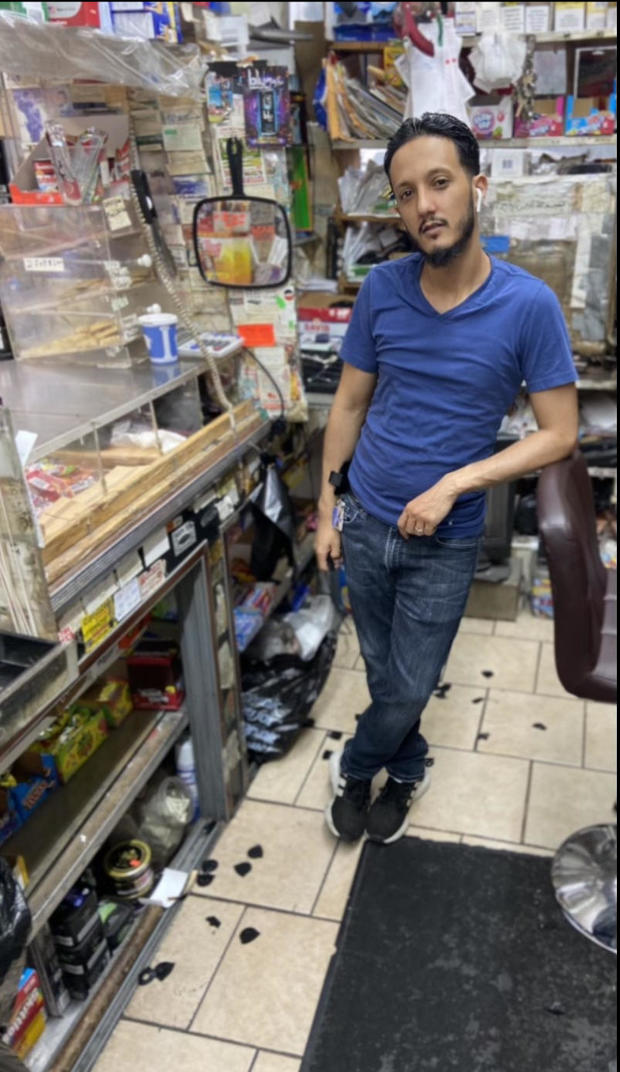A car passed, the driver’s window rolled down and a man hurled an epithet at the two young girls wearing hijabs: “Terrorist!”
It was 2001, just weeks after the twin towers at the World Trade Center fell, and 10-year-old Shahana Hanif and her sister were walking to the local mosque in Brooklyn, New York. Frightened, they ran.
Hanif, now 30, can still recall the shock of the moment, her confusion over how anyone could look at her, a child, and see a threat. “It’s not a nice, kind word,” she said. “It means violence, it means dangerous. It is meant to shock whoever is on the receiving end of it.”
But the incident also spurred a determination to speak out for herself and others. Hanif is today a community organizer who is favored by many to win a seat on the New York City Council in an upcoming municipal election.
Saturday marks the 20-year anniversary of 9/11. Weeks after the attacks, Arab and Muslim Americans like Hanif became targets of hate crimes and violence.
“There was a significant and very vocal minority at the beginning that harbored negative views of Muslims,” said Dalia Mogahed, research director for the Institute for Social Policy and Understanding, a Michigan think tank that studies social trends impacting Muslim Americans.
Two decade on, hostility persists. The Iraq War, launched in 2003, helped fuel some Americans’ antipathy toward Muslims, as did political rhetoric from Republicans during the 2008 and 2012 presidential elections, Mogahed said.
A recent poll from the Associated Press-NORC Center for Public Affairs Research conducted ahead of the 9/11 anniversary found that 53% of Americans hold unfavorable views toward Islam, compared with 42% who have favorable ones. This stands in contrast to Americans’ much more favorable opinions about Christianity and Judaism.
A Pew Research Center study this month also found that although the U.S. Muslim population is growing, to almost 4 million people of all races, Muslims in this country still face negative views in daily life. And a 2020 poll from Mogahed’s organization found that Muslim Americans are more likely than any other group that experiences religious discrimination to experience bias on an “institutional level,” such as when going through an airport, applying for a job, receiving medical care or interacting with law enforcement.
Hoping to fight the discrimination that followed 9/11, many Muslim Americans in the ensuing years ran for local political office or launched nonprofits aimed at teaching people about the Islamic faith, according to Mogahed. “There was an urgent desire to educate the public that didn’t exist before that,” she said.
Small businesses and corporate workplaces are also venues for educating. There are about 100,000 Muslim-owned businesses in the U.S., according to a 2012 study from Missouri think tank Strategic Research Circle. About half of them operated in Chicago, Houston and New York City at the time.
In the Bronx, New York, 31-year-old Mohamed Nageeb told CBS MoneyWatch that customers at his grocery store are much more welcoming than years past, but that wasn’t always the case. Nageeb said his father told him stories years ago about how anti-Muslim customers would try to inflict damage on the family business — some people threw grocery items about the store, others simply stopped coming to the 30-year-old establishment altogether, he said.
“People used to steal and loot right in front of you and say you can’t do anything about it basically because you are a terrorist,” Nageeb aid.
These days, Nageeb said the way New Yorkers often accept him, his faith and his family has greatly improved. The community has been equally accepting of other Muslim Americans as well, he said.
“People treat us as family,” Nageeb said. “After all these years have gone by, I guess us going through school and jobs, people got to know us much better.”
“This is our nation, too”
Shukri Olow, 34, fled civil war with her family and lived in refugee camps in Kenya for years before coming to the U.S. in 1997 when she was 10. Growing up in Kent, Washington, a midsized city south of Seattle, she felt embraced by her community, Olow said.
Then 9/11 happened. She recalls feeling confused when a teacher asked her, “What are your people doing?” But Olow also remembers others who defended Muslim Americans and worried about her safety.
“For those of us who live at the intersection of anti-Blackness and Islamophobia … it was really hard,” said Olow, who is now seeking a seat on the King County Council.
“There are many young people who have multiple identities who have felt that they don’t belong here, that they are not welcomed here,” she said. “I was one of those young people. And so I try to do what I can to make sure that more of us know that this is our nation, too.
Ishaq Pathan, 26, recalls the time a boy told him he seemed angry and wondered if he was going to blow up their Connecticut school. In another incident that lingers, he was taken aside at an airport for additional questioning upon returning to the U.S. after a college semester in Morocco. The agent looked through his belongings, including the laptop where he kept a private journal, and started reading it, Pathan said.
“I remember being like, ‘Hey, do you have to read that?'” he said. “The agent just looks at me like, ‘You know, I can read anything on your computer. I’m entitled to anything here.’ And at that point, I remember having tears in my eyes. I was completely and utterly powerless.”
Widespread negative attitudes toward Muslim Americans are likely to persist until more non-Muslims probe and confront their own feelings, Mogahed said. That starts with doing your own research on the Islamic faith and becoming friends with a Muslim American, she suggested.
“There’s no easy solution,” Mogahed said. “It’s going to take education and relationship-building.”
The Associated Press contributed to this report.


